- Soil Association
- Farmers & growers
- Farming case studies
- Case study: Robert England, Boxford Fruit Farms

Robert England Boxford Fruit Farms
Robert England, Boxford Fruit Farms
Boxford Farm is a large-scale fruit producer located on the Suffolk-Essex border, managed by farm director Robert England. The 235-hectare farm grows apples, cherries, strawberries, raspberries, blueberries, and asparagus. It has also diversified into additional markets, enabled in part by the use of residual heat from their 1.25MW anaerobic digestion unit.
Conventional growing with sustainability and efficiency at its core
Boxford is a conventional fruit grower, but in the interest of sustainability and business efficiency, they manage their crops with minimal inputs. For example, they focus on Integrated Pest Management (IPM) techniques to reduce the use of sprays.
IPM has helped to reduce pesticide use through monitoring pests and utilising their home-grown beneficial insects, which is good for environmental and business sustainability. “We were spending about £25,000 a year on buying in spider mite control, we’re now only spending about £15,000”.
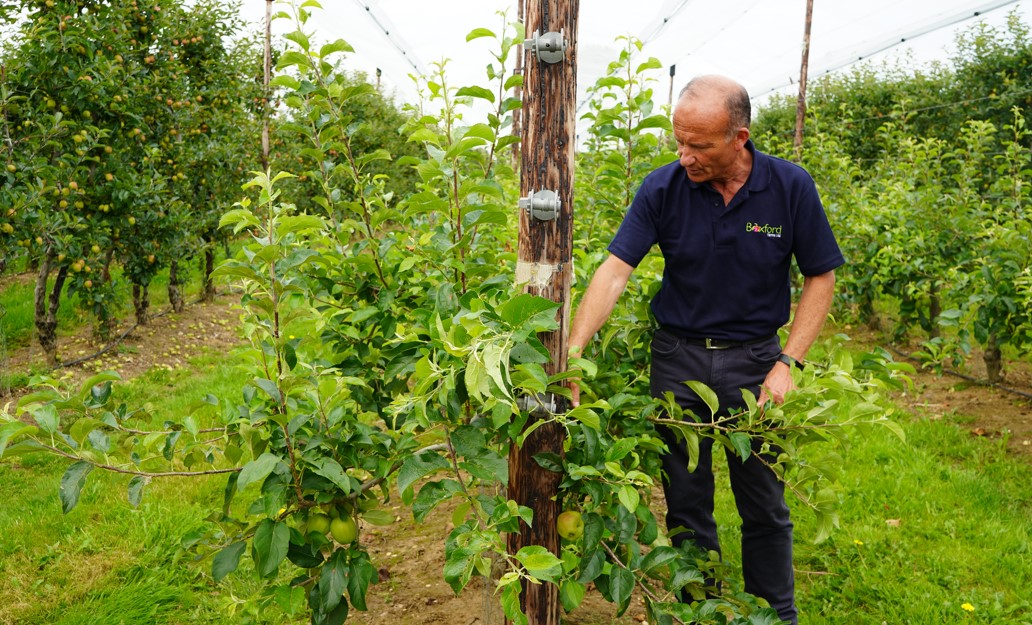
Robert England inspects apples
Find out more about agroecological practices employed at Boxford Fruit Farms:
Maximising efficiency of farm activities
Using on-site facilities has meant they are able to be efficient across the farm. For example, the farm produces all its energy - as well as that of their co-located business partners - through anaerobic digestion, solar power, and biomass boilers.
Food waste from the fruit business and the co-located juice factory is used in the anaerobic digester to generate electricity. This process has led to the development of multiple spin-off markets to utilise the excess heat, including drying digestate into organic fertiliser, drying woodchips and logs for the greenhouse biomass heater, installing a heating system for staff accommodation, and heating tunnels to grow beneficial predatory mites for natural pest control in their soft fruit crops.
Precision water management
Water management is handled through a precision irrigation system that optimises water use from private reservoirs and recycled water from the juice factory. Moisture, soil tension, and EC (electrical conductivity) sensors control a drip-fed system that can "tell us how thirsty the trees are," providing glasshouse-level precision on a large outdoor scale.
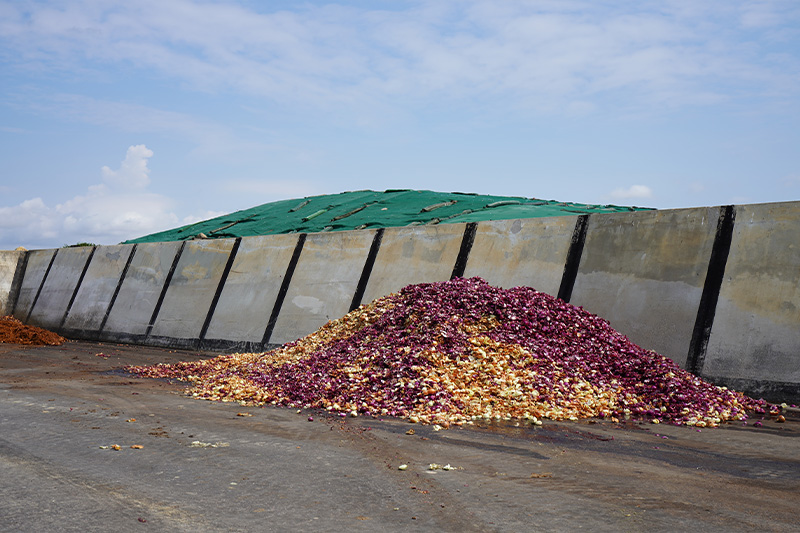
Managing waste
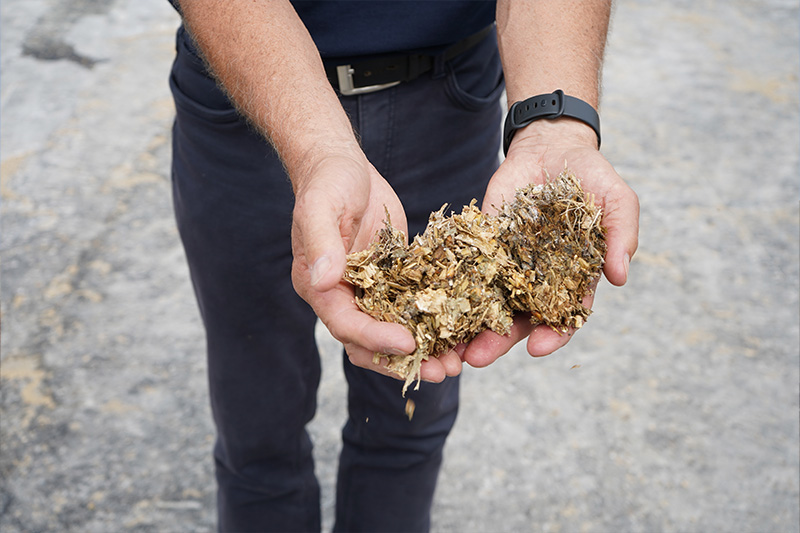
Drying woodchip
Adapting farming practices to take a whole farm approach
“We've all had to learn new skills and adapt to new ways of working,” says Robert, reflecting on the steep learning curve he and his team have been on. This has involved additional training to spot early signs of crop health issues, alongside using computer models to forecast pest and disease outbreaks. Their goal is to use chemical interventions only as a last resort, ensuring they are absolutely necessary.
This approach has led to changes in the business setup. Robert gives the example, “Counterintuitively we’ve bought more sprayers, so actually if I need to, I can spray the whole farm of apples in a day, which means I can wait until the last moment before we make a decision about whether to go ahead”.
Physical crop protection measures have also been implemented, such as hail nets that create a protective barrier around the crops. These nets not only shield the crops from extreme weather but also help keep pests out, further reducing the need for pesticides.
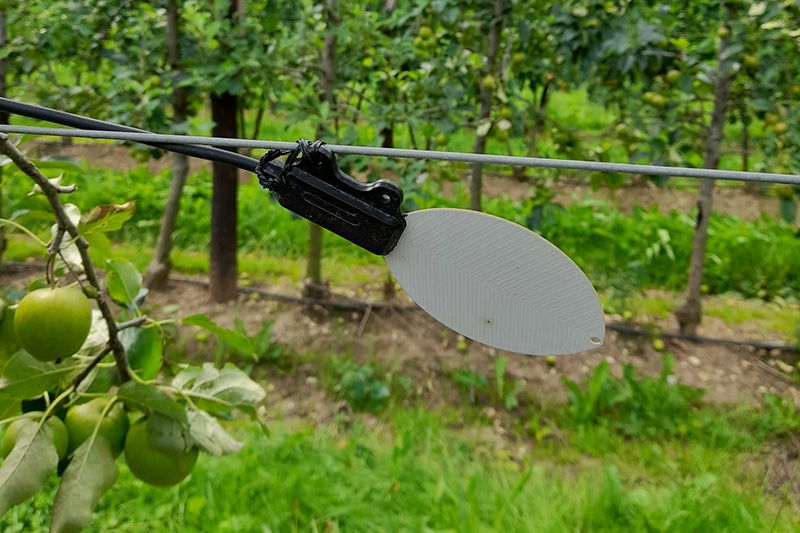
Integrated pest management techniques
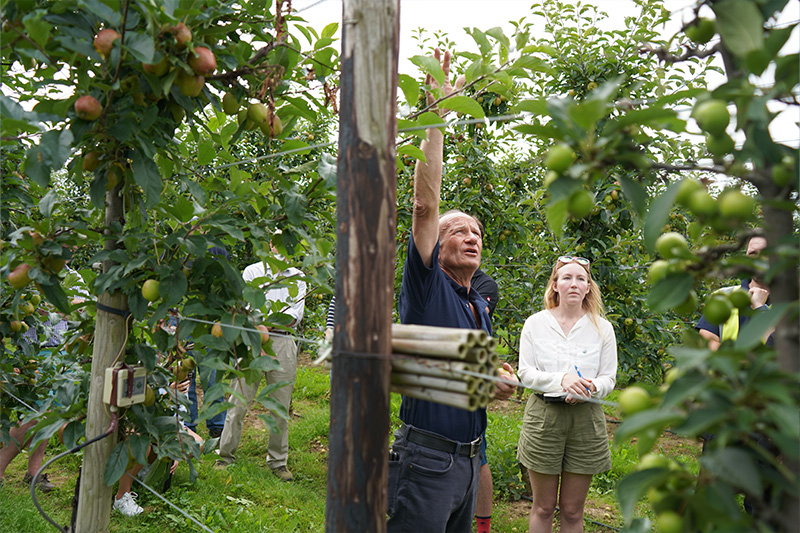
Maximising resources on the farm
Robert says, “Maximising the opportunities with our farm residuals has made total sense for our business and these things are not just unique to us or possible because of our scale.” He suggests that smaller businesses could join forces in a local network to transform waste and make use of biproducts.
Transitioning towards a more resilient farm
Reflecting on his journey towards farming in a more holistic manner, Robert shares, “It hasn’t been a quick process, it’s been slow, there is a learning curve, there have been some setbacks. I think what I would say is…all I can say to people is be encouraged, be patient… and be clear with what you want, and you will be pleasantly surprised with what you can achieve”.
Find out more
We're using the term 'agroecology' in a very specific way in relation to farming, referring to 'whole farm' systems that benefit nature, animal welfare, soil health and climate resilience. This is just part of its full definition, which you can read more about here.
More low input farming advice can be found here.
